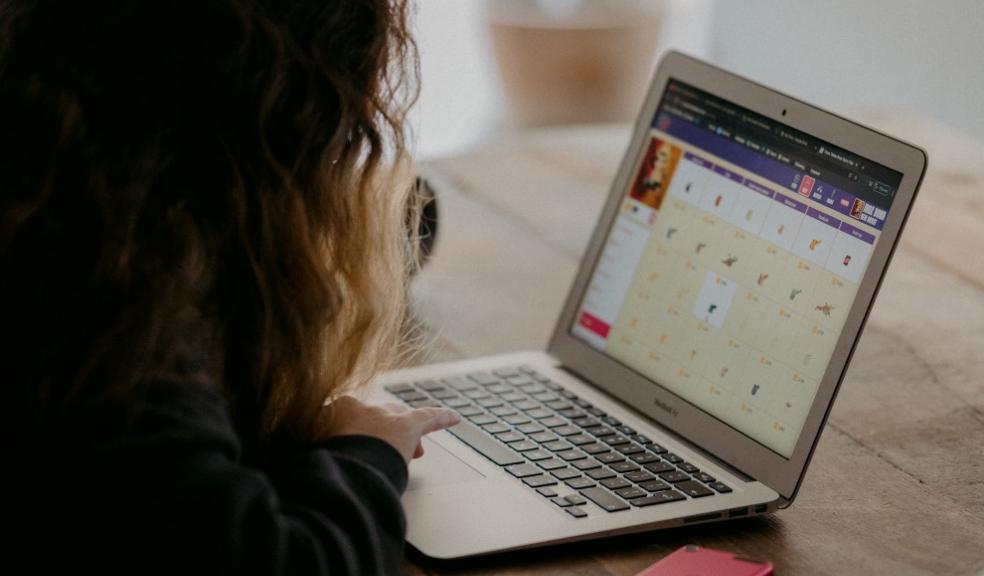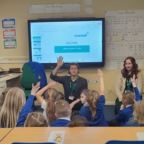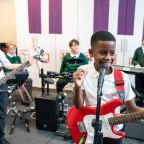
Rosetta Stone announces free language learning courses for school children worldwide
With the halls of learning closed indefinitely because of the coronavirus pandemic, in excess of 10 million school kids across the UK need to continue their revision and learning at home.
So, who can parents turn to as they look to make sure their children do not fall behind and are still picking up the knowledge and learning they would be at school?
For pupils studying language in particular, learning in isolation is a huge obstacle. Practicing phrases verbally and having conversations to hone your skills is essential to improving your understanding and ability.
While becoming a substitute home tutor is an overwhelming prospect for many mums, dads and caregivers, who are having to adapt their working and everyday lives, there is help at hand, especially when it comes to helping your child become proficient in another language.
In response to school closures affecting more than 800 million children worldwide, Rosetta Stone Inc. today announced that it will give three months of free language learning to all primary and secondary students worldwide. Available now, parents can visit www.rosettastone.co.uk/lp/freeforkids to claim a free subscription for a language of their choice.
Experienced Rosetta Stone virtual tutor, Zakariah Hal, comments, “I can understand how unnerving this time of uncertainty might seem for parents who aren’t used to doing more than just the occasional piece of homework with their children. First of all and most importantly, don't stress! You know more than you think and the things that you don't know are available online from reliable institutions (like Rosetta Stone). You are not alone, reach out to other parents to share techniques and be sure not to overcomplicate the learning process.”
Here are Zakariah’s expert tips on how parents can take advantage of free resources to make learning at home an enjoyable and educational experience for the whole family.
- Especially at the moment, there are so many options available to connect with and to give you support. Online schools everywhere are offering free trial periods and teaching resources are available from reputable sources. Again, it is important to find trustworthy sources, but those resources are plentiful online.
- Routine is great. The most productive classrooms I've experienced had a clear set of rules as well as a clear schedule for the day. When children don't have that structure they can act in ways that are not conducive to home learning. That being said, it is not a case of being too strict. Add a reward system, something as simple as a sticker for young children or 30 minutes of media time for older children can really tip the balance.
- Don’t try to model the classroom. You are providing education in your home. This can become confusing to younger children. A desk and chair is not necessary. Try a bean bag, the kitchen table, the sofa.
- Do make learning times fun. Education can happen at ALL times of the day. Be willing to be flexible during this time.
- Education doesn’t just happen with a timeline or books. Follow your kids' interests and use occasions or events on TV or in the news to structure your topics of study.
- Keep in mind that you are transitioning from a parent to a parent acting as teacher. This can become an area of frustration between the child and parent. If an area of study becomes too much and compromises the relationship, it’s okay to step away from it for a day or two. Learning will always suffer if the relationship is stressed. Try a different subject or activity such as painting or playing a game. Some of our best and most retained learning come from games like Scrabble!
- Screen time - For non-educational screen time, set limits and times. It’s easy to get pulled into scrolling on social media or playing endless hours of games during stressful times. Set a timer if needed. Or work out a system of reward time: 20-30 minute segments to look forward to.
- Ask LOTS of questions. What are their interests? What do they want to learn about? Make certain to ask about their feelings during this time. Are they concerned? Do they have questions? Now is a good time to address their mental health and what is worrying them. It’s best to keep them somewhat informed and not fearful. You can easily make health and fitness a unit study at this time. Economics, politics for older children: so many options!
- Physical activity. While we are practicing social distancing, we are not unable to get outside to move. Fresh air and physical exercise will be crucial to mental and physical health. Go for a walk, find an online exercise routine through Instagram, YouTube or even Pinterest.
For more information go to rosettastone.co.uk and if you go to www.rosettastone.co.uk/lp/freeforkids you will be able to start the free 3 months of learning.













